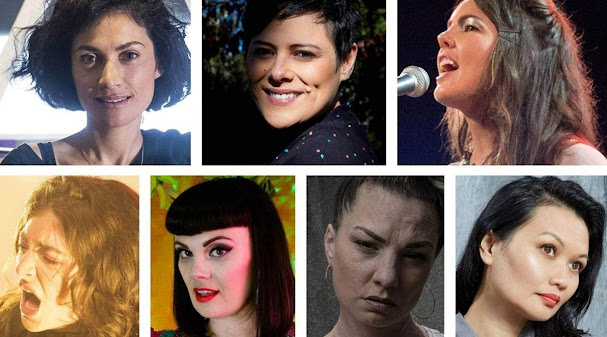Last week's revelations of sexual harassment and exploitation in Aotearoa's music industry have resulted in a number of high profile sackings, including at Warner Music and CRS Management. It has prompted a open letter calling for some much-needed significant change.
The following, which has been published in a number of media outlets was written by Anna Coddington and signed by Bic Runga, Anika Moa, Lorde, Tami Neilson, Hollie Smith and Mel Parsons. The letter below was originally published here.
“Music is a powerful force, capable of moving us impressionable humans in all directions. It’s difficult, if not impossible, to make moving art without allowing yourself to be vulnerable and emotional sometimes. It is part of an artist’s job to feel deeply in all directions in order to create something worth listening to.
People in the engine room of the music industry – studios, venues, festivals, any place where music is being made – are working in conditions where emotions may be high, hours may be long, green rooms may be small, and alcohol is often used as a social lubricant or a way to pass the time. These are the conditions of the workplace.
To everyone working in the industry – you know the conditions. We’re all passionate about music and regularly in awe of the talent around us. But if the artist’s job is to feel deeply and be vulnerable enough to create moving music, yours must be to help them professionally and personally, without crossing boundaries and taking advantage of them.
Right now is an opportunity to assess yourself honestly and reflect on how you conduct yourself in those environments. If you can’t work in those conditions while preserving the dignity of those around you, now is the time to either find another work environment that you can handle yourself in, or make use of the various resources and procedures being put in place by SoundCheck Aotearoa and other initiatives to educate yourself and change behaviours. This goes for everyone, industry-wide.
Men in the music industry have been operating in a safety-in-numbers scenario since forever. Young women, takatāpui, and other minorities stepping fresh into the music industry do not have that safety. Yes it’s a hard knocks career choice. Everyone needs to be ready to have their ego checked and confidence crushed, or the opposite – great success, fans at their feet, whatever. Either way artists are up for some head-messing times and need to learn to deal with that, hopefully with good support around them. What nobody should have to deal with ever – under any circumstance – is sexual harassment.
We need better behaviour from those who hold power now, but ultimately we need more diversity in those positions of power so that the music industry as a whole can thrive and reap the benefits of different perspectives. Innovation in both business and creativity will follow – there is plenty of research to back this up. It requires active and conscious change, and the transfer of some power from the restricted group who hold it now to others who don’t look or think like them. We’ve been talking about this and failing to affect change for a very long time, but it can and must be done.
• Learn about boundaries and consent. If you can’t operate within those boundaries don’t operate.
• Do not accept the transgression of those boundaries from anyone you work with. If you see or hear something don’t let it slide.
• Check on people. If you suspect someone is being made to feel uncomfortable – ask them if they’re ok.
• Do your best to be in the right, but always be ready to be wrong. If someone tells you a behaviour is not acceptable to them, no matter how small, don't get defensive – learn from it.
• Diversify your workplace. If you need another person, actively seek candidates from different backgrounds, with different perspectives.
• Speak to professionals who can help you achieve these goals – there are plenty. Do not rely on musicians and others in your own industry to teach you. That is unpaid labour and surprise – we aren’t psychologists or HR pros and probably don’t even have the tools you really need.
• Don’t make public statements without taking private action.
Imagine a music industry without women, non-binary, rainbow community, differently-abled, Māori, and other ethnic minorities. Imagine if the artists demographically reflected the “industry”. No one wants that. It’s boring. You could say goodbye to most of the acts we’ve all been enjoying at festivals this summer for starters – the ones who have been helping EVERYONE in the industry recover the losses of last year. Without an interesting array of people the music suffers. Make it safe for them. Safety – it’s the very minimum every human being deserves.
The onus for change can’t sit with those of us who don’t hold that power. Everyone should want a better, safer, more productive industry. Artists are not here to help you make these changes. We don’t want to be writing open letters and talking to the media about the inappropriate behaviour of others. We want to be working on our music.”
Groove supports this and condones sexual harassment of any kind. We support all music workers and artists, no matter who they are. If you are a music worker in Aotearoa and you need crisis or counselling support, the MusicHelps Wellbeing Service is available 24/7 online here, on the phone (toll free 0508MUSICHELPS) and in-person for free, fully funded by MusicHelps.










